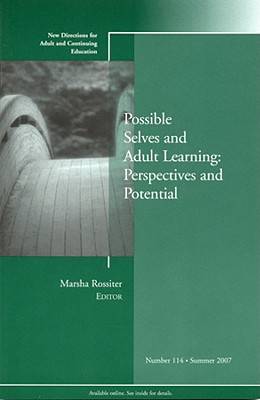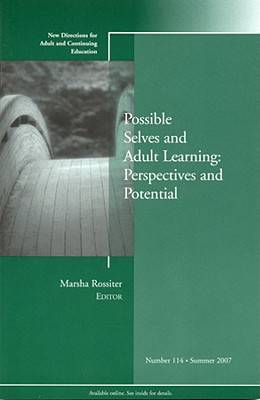
- Retrait gratuit dans votre magasin Club
- 7.000.000 titres dans notre catalogue
- Payer en toute sécurité
- Toujours un magasin près de chez vous
- Retrait gratuit dans votre magasin Club
- 7.000.0000 titres dans notre catalogue
- Payer en toute sécurité
- Toujours un magasin près de chez vous
Possible Selves and Adult Learning: Perspectives and Potential
New Directions for Adult and Continuing Education, Number 114
Description
Introduced by Hazel Markus and Paula Nurius in 1986, possible selves refer to the future-oriented components of an individual's self-concept; they are imagined future selves, including the selves that are ideal and hoped for. In the past twenty years, a substantial body of research has explored the connections between possible selves and life span development, race and gender, career development, and academic achievement. As a result, a variety of possible selves approaches has been applied in fields of practice corresponding to adult education, although the construct remains relative unknown in adult education itself.
This is the 114th issue of the Jossey-Bass quarterly report series New Directions for Adult and Continuing Education.
Spécifications
Parties prenantes
- Editeur:
Contenu
- Nombre de pages :
- 99
- Langue:
- Anglais
- Collection :
- Tome:
- n° 114
Caractéristiques
- EAN:
- 9780470183298
- Date de parution :
- 01-07-07
- Format:
- Livre broché
- Format numérique:
- Trade paperback (VS)
- Dimensions :
- 162 mm x 229 mm
- Poids :
- 163 g

Les avis
Nous publions uniquement les avis qui respectent les conditions requises. Consultez nos conditions pour les avis.





